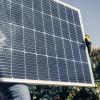
Understanding the true cost of solar panels in the UK
In recent years, the UK has seen a surge in the adoption of solar energy. This green energy source not only contributes to reducing carbon emissions but also offers a long-term solution to energy costs. For homeowners and businesses considering the switch to solar, understanding the actual cost of solar panels is crucial. This article aims to provide a comprehensive overview of the financial aspects of installing solar panels in the UK.
Initial costs of solar panel installationThe initial cost of solar panel installation in the UK varies based on several factors. These include the size of the system (measured in kilowatts, kW), the type of panels, the complexity of the installation, and the company chosen for installation.
-
System Size and Type: The average domestic solar panel system in the UK ranges from 3kW to 4kW. A typical 3kW system might cost between £4,000 and £6,000, while a 4kW system can cost between £6,000 and £8,000. Prices can vary depending on the type of solar panels used. Monocrystalline panels, known for their efficiency, might be more expensive than polycrystalline panels.
-
Installation Complexity: The cost can increase based on the complexity of your roof layout. More complex installations require additional labor and materials.
-
Choice of Provider: Prices vary among providers. It's advisable to get quotes from multiple certified installers to compare prices and services.
While the upfront cost may seem high, solar panels are an investment. Over time, they offer significant savings on electricity bills.
-
Energy Bill Savings: After installation, your energy bills can decrease substantially. The exact savings depend on your energy usage and the size of your solar system. Typically, a household can save up to £400 annually on electricity bills with a 4kW solar panel system.
-
Feed-in Tariff and Smart Export Guarantee (SEG): While the Feed-in Tariff (FiT) scheme in the UK has ended, the Smart Export Guarantee (SEG) launched in January 2020 pays homeowners for the surplus energy they export back to the grid. This further adds to the savings.
-
Increased Property Value: Installing solar panels can increase your property’s value. Homes with solar panels are often seen as more desirable, especially as energy efficiency becomes a growing consideration for buyers.
Solar panels require minimal maintenance. However, occasional cleaning and checks ensure they operate efficiently. An annual inspection can cost around £100 to £150. Most solar panels come with a warranty of 20-25 years, guaranteeing their performance over a long period.
Incentives and government grantsThe UK government offers various grants and incentives to encourage the adoption of solar energy. For instance, the Green Homes Grant, although limited in scope, provides vouchers to homeowners and landlords to install solar thermal panels.
Break-Even pointThe break-even point, where savings equal the initial investment, typically occurs 15-20 years after installation. However, this period can vary based on the initial costs, energy savings, and incentives received.
Solar panels represent a significant upfront investment, but they offer long-term financial benefits and contribute to a more sustainable future. With the decrease in solar panel prices over the past decade and various incentives available, solar energy is becoming an increasingly cost-effective option for UK residents. When considering solar panels, it's essential to look beyond the initial cost and evaluate the long-term financial and environmental benefits they offer.










